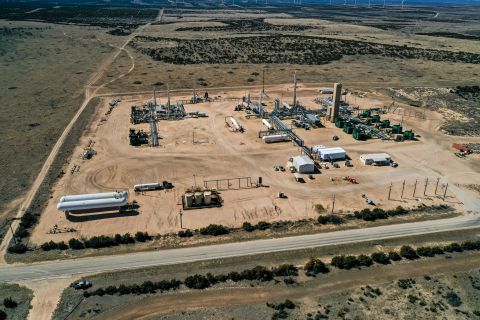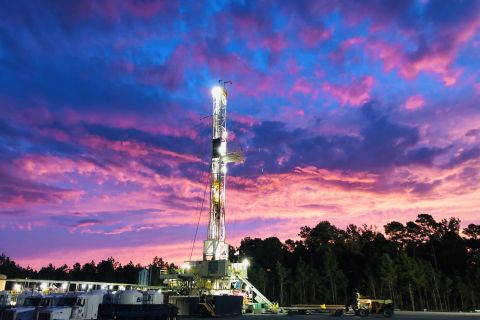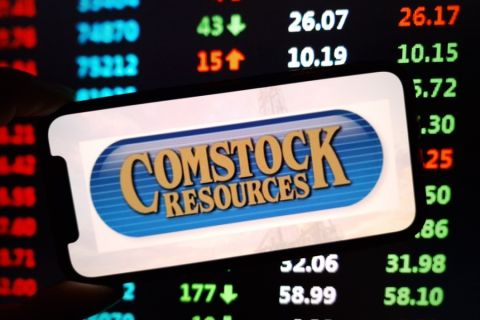Proved reserves in the Gulf of Mexico are the most expensive in the world currently-more expensive than reserves in the super-heated Canadian marketplace. This is according to a snapshot from Houston-based energy-research firm John S. Herold Inc. and U.K.-based asset-marketer Harrison Lovegrove & Co. Ltd.'s annual M&A review. The full report was being prepared at press time. The firms studied nearly 300 asset and corporate transactions that were announced in 2005, totaling some $160 billion in value-the highest total dollar value since the roughly $150 billion of the 1999 review and shy of the $200 billion of the 1998 review. The annual reviews were commenced by Herold with the 1996 study year; Harrison Lovegrove joined as a partner in the study during the past two years. Gulf of Mexico proved reserves cost an average of some $22 per barrel of oil equivalent (BOE) in 2005, according to the study results. Meanwhile, Canadian proved reserves ranked No. 2 in price: roughly $20. (All dollar figures in this article are U.S.) The Canadian marketplace is so steamy that even prices paid per proved-plus-probable BOE-just under $15-in 2005 are more than the average paid (some $12.50) for proved reserves across the U.S. Royalty trusts have been blamed-or applauded, if in the seller's seat-for driving up the price of reserves in Canada. But the Top 5 deals there in 2005 in terms of price actually involved traditional and small independents acquiring each other, says Chris Sheehan, senior vice president and director of M&A research for Herold. "More than 30% of Canadian deals were at more than $30 per proved BOE," he adds. "It's really astonishing." As for the U.S., outside of the Gulf of Mexico, average 2005 prices per proved BOE were approximately $14 in the Rockies, $13.50 in Appalachia, $12 onshore the Gulf Coast, $10 in the Midcontinent and $4 on the West Coast. Deals involving U.S. assets across several basins and regions averaged some $11.50 per proved BOE. Deal values jumped across the globe in 2005, to an average of $8.10 per proved BOE outside North America from $1.52 in 2004. When backing out transactions involving assets in the former Soviet Union-these deals tend to be lower-priced because of the nature of some continued government interest in them-transactions outside North America averaged $9.99 per proved BOE, up from $3.91 in 2004. The figures "are more than double in the last two years what people are prepared to pay for proved reserves," says Michael Bridden, managing director, research group, for Harrison Lovegrove. As for unconventional assets, 2005 transactions worldwide totaled some $4.5 billion. These assets are segregated in the Herold/Harrison Lovegrove study as those involving coalbed methane, Barnett Shale, heavy oil, oil sands, and gas reserves that have the potential to be monetized as liquefied natural gas. This sub-group's 2005 total deal value is down from some $18 billion in 2004, which included roughly $14 billion of coalbed-methane-asset transactions, particularly several U.S. Rockies deals. Meanwhile, in 2005, deal values for oil-sand assets grew to about $2 billion, while there were virtually none of these purchases in 2004. "Canadian oil sands attracted heavy international attention and made headlines," Sheehan says. Total E&P Canada Ltd. paid 40% more for Deer Creek Energy Ltd.'s proved, probable and possible oil-sands reserves (roughly $2.90 per BOE of 3P) than other companies paid for proved oil-sand reserves in Canada two years ago (under $2 per BOE of 1P). "There has been a staggering amount of growth in what folks are willing to pay to get into that play," Sheehan says. So far in 2006, however, the Canadian marketplace has been relatively quiet, he adds. Meanwhile, transactions for Barnett Shale assets in the "unconventional" sub-group grew in 2005 to some $800 million from roughly $350 million in 2004, $100 million in 2003 and none in 2001. Through late March this year, transaction announcements worldwide have totaled some $12 billion, mostly asset transactions and a good deal of them (Petrohawk Energy/Northstar Interests, Pioneer Natural/Marubeni, Houston Exploration/Merit Energy and Forest/Mariner) involving Gulf of Mexico assets. In 2005, corporate transactions represented some $120 billion, or 75% of the total $160 billion in deals. This is compared with representing some 50% of the roughly $70 billion in deals in 2004 and $45 billion of deals in 2003. One 2005 corporate transaction announcement-ConocoPhillips' purchase of Burlington Resources-carried a $36-billion price tag and was the biggest deal of 2005. "It was a return to major corporate deal-making," Bridden says of 2005 corporate-transaction activity. Spurring so much total volume last year was producers' surplus cash generation and the pressure to replace reserves. "It's no surprise," he says of the large transaction numbers. Other top deal announcements of 2005 are Chevron Corp.'s purchase of Unocal Inc. ($20 billion), Gazprom's purchase of Sibneft ($13 billion), Occidental Petroleum's purchase of Vintage Petroleum ($4 billion), CNPC's purchase of PetroKazakhstan ($3.9 billion), Maersk, Amerada Hess, Centrica and Talisman Energy's purchase of Kerr-McGee Corp.'s North Sea assets ($3.7 billion), Inpex's purchase of Teikoku ($3.2 billion), Chesapeake Energy's purchase of Columbia Natural Resources ($3.0 billion), Norsk Hydro's purchase of Spinnaker Exploration ($2.6 billion) and Talisman's purchase of Paladin Resources ($2.4 billion). Bridden says, "There has been a lot of competition for assets in the last year...Almost all of the largest deals are corporate. These Top 10 are also half of the deal value for 2005...When asset packages are rare, then companies tend to buy companies." Particularly remarkable in the 2005 study results is the increasing value being placed in transactions on probable reserves. "(Proved plus probable) implied values skyrocketed as buyers placed lofty valuations on probable reserves based on bullish long-term price outlooks," Bridden says.
Recommended Reading
Midstream M&A Adjusts After E&Ps’ Rampant Permian Consolidation
2024-10-18 - Scott Brown, CEO of the Midland Basin’s Canes Midstream, said he believes the Permian Basin still has plenty of runway for growth and development.
Post Oak-backed Quantent Closes Haynesville Deal in North Louisiana
2024-09-09 - Quantent Energy Partners’ initial Haynesville Shale acquisition comes as Post Oak Energy Capital closes an equity commitment for the E&P.
Analyst: Is Jerry Jones Making a Run to Take Comstock Private?
2024-09-20 - After buying more than 13.4 million Comstock shares in August, analysts wonder if Dallas Cowboys owner Jerry Jones might split the tackles and run downhill toward a go-private buyout of the Haynesville Shale gas producer.
Aethon, Murphy Refinance Debt as Fed Slashes Interest Rates
2024-09-20 - The E&Ps expect to issue new notes toward redeeming a combined $1.6 billion of existing debt, while the debt-pricing guide—the Fed funds rate—was cut on Sept. 18 from 5.5% to 5%.
Dividends Declared Sept.16 through Sept. 26
2024-09-27 - Here is a compilation of dividends declared from select upstream, midstream and service and supply companies.
Comments
Add new comment
This conversation is moderated according to Hart Energy community rules. Please read the rules before joining the discussion. If you’re experiencing any technical problems, please contact our customer care team.





